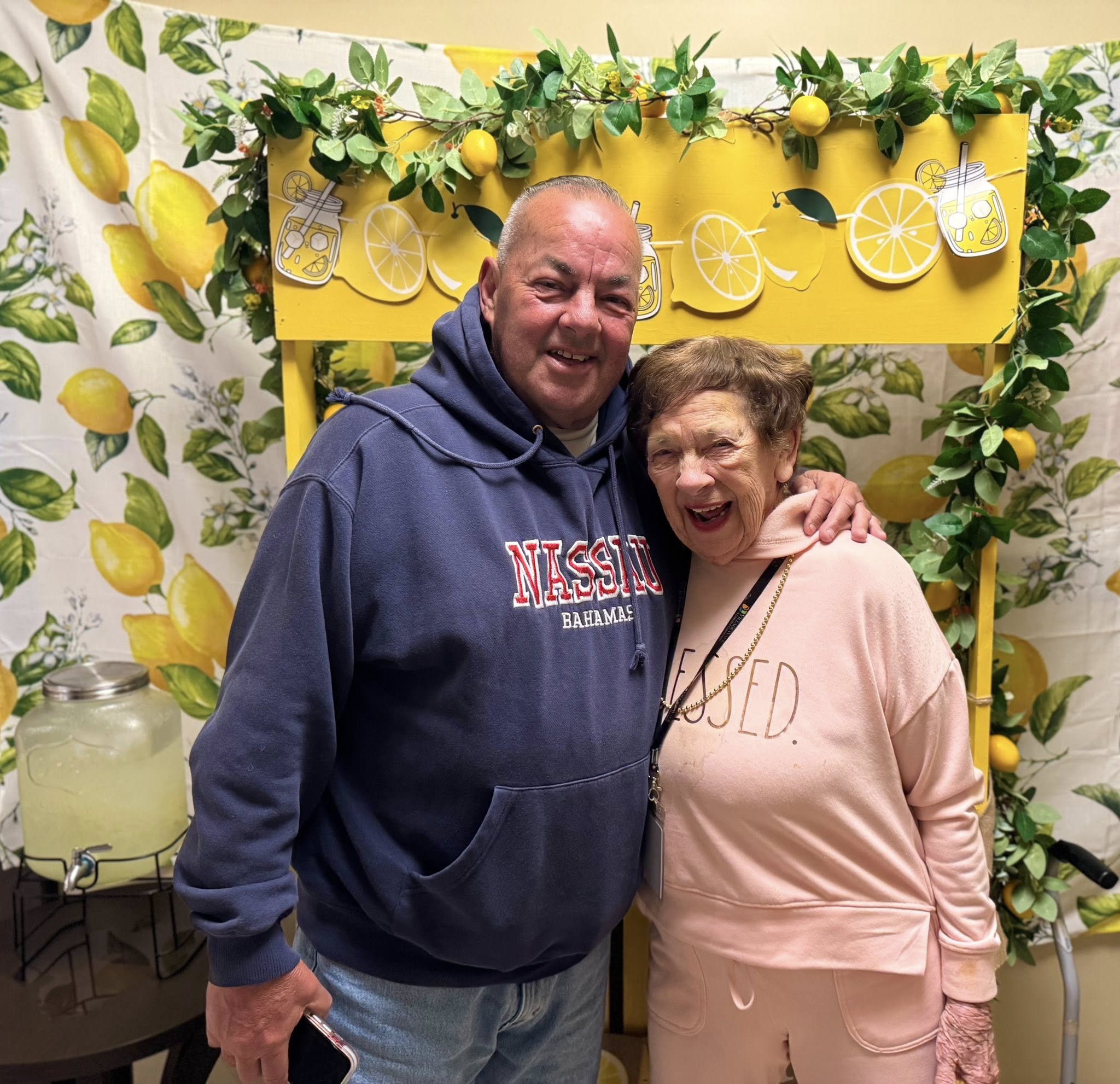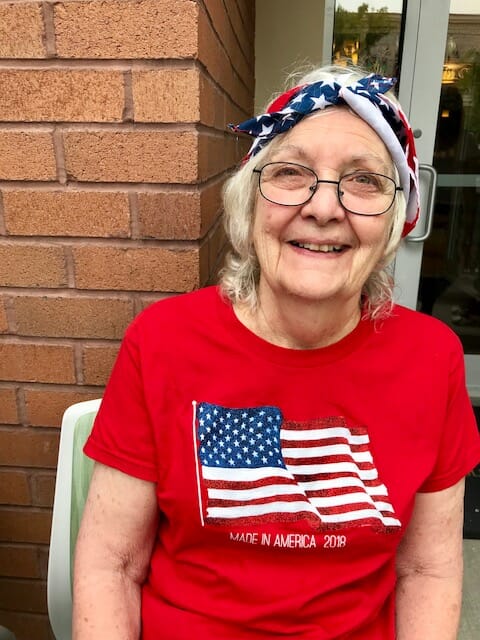Memory care for seniors is specialized support for individuals 55+ with memory loss-related conditions such as dementia and Alzheimer’s.
Not to be confused with assisted living, memory care offers a crucial service for seniors who need continuing support for most activities of daily living. You’ll want to know the difference between memory care and assisted living for seniors so that you and your loved one receive the right help for their needs.
Otherwise, you could find yourself shelling out money for a service that doesn’t fit your needs.
Not to worry, though. We’ll unpack what memory care for seniors looks and feels like in this article.
If you’re wondering what memory care for seniors is like, then this article and educational resource is for you.
Join us! In this article, we’ll discuss:
- Key aspects of memory care for seniors
- When to know when your loved one is ready for extra care
- Benefits of memory care for seniors
- Key qualities and details to look for when choosing a senior living facility
- The cost of extra care
- Other similar options to memory care for seniors
Key aspects of care communities for seniors
| 1. The physical environment of the facility 2. The quality of staff 3. The types of activities and food provided 4. The types of healthcare and extra amenities provided |
The scope of memory care

What exactly do we mean when we say “memory care?” What’s involved in the overall scope of memory care?
Memory care is designed to provide safe, structured environments with routines to help lower stress for people with Alzheimer’s, dementia, and other forms of memory loss.
Who exactly delivers memory care services? Stand-alone facilities and many assisted living facilities, continuing care retirement communities, and nursing homes provide special memory care spaces — often dubbed memory care “neighborhoods” —for dementia patients.
Each memory care facility houses recreational staff to run art and music activities that help improve, maintain, and engage cognitive functioning in residents at different stages of their life journey.
What’s more, memory care facilities also tend to have alarmed security systems, doors, elevators, and other systems that require enclosed outdoor spaces to ensure the safety of residents within the perimeters of the facility.
Especially since many people with dementia tend to wander, memory care communities will provide tracking bracelets or necklaces that give residents the freedom to explore the facility while giving staff the ability to monitor their locations.
In short, memory care is an all-encompassing term for the services, facilities, staff, and progression of care provided to individuals with memory-related conditions who need memory care support.
Aside from the scope of memory care, the next question our clients often ask is: how do I know when my loved one needs memory care at a memory care facility?
Know when your loved one is ready for memory care
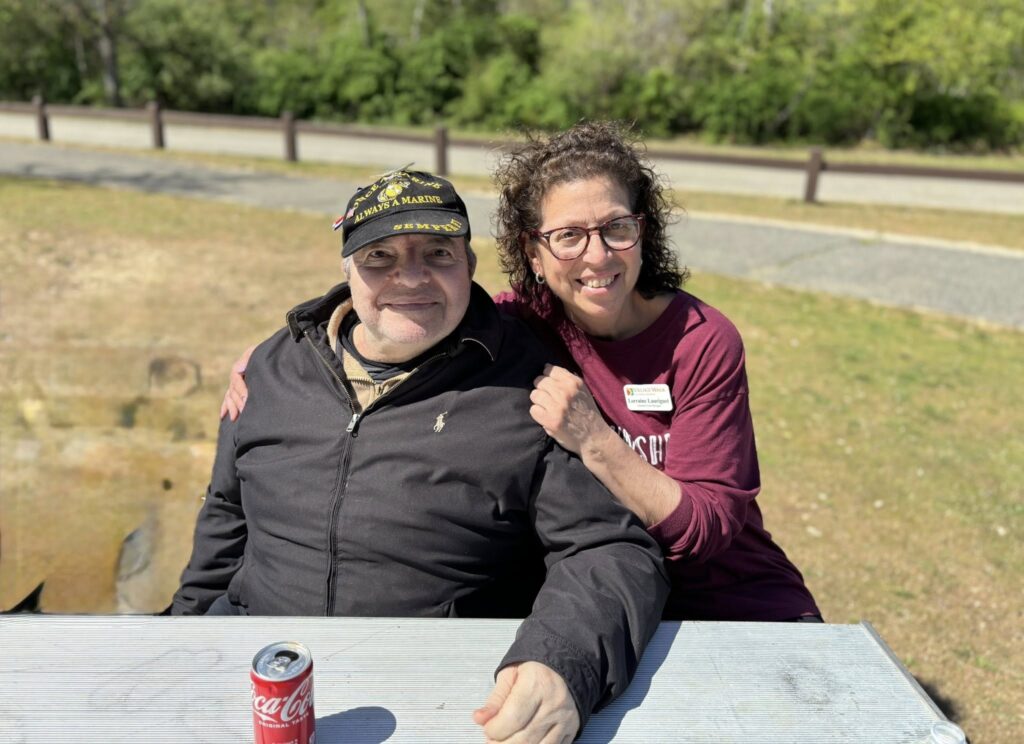
We’re going to be straight with you: not everyone who is diagnosed with Alzheimer’s or dementia needs to live in a memory care facility. Let us explain.
Many people diagnosed with Alzheimer’s can live on their own during the beginning stages of their condition. In fact, many family members provide caregiving — or hire a caregiver — to provide regular, in-home support.
But, if respite care, in-home care, and in-home assisted living support are no longer viable for you and your loved one experiencing the various stages of dementia, your loved one may be ready for memory care support.
In other words, there comes a time when your loved one will need more care than you feel you can provide at home. To help you determine whether moving to a memory care community is best for you and your loved one, consider asking yourself the following questions.
- Is my loved one with dementia unsafe at home? Do they pose a threat to themselves?
- Is my loved one’s health, my caregiver’s health, or my health at jeopardy?
- Would providing care to my loved one exceed my physical abilities?
- Is my mental health suffering as a result? Am I becoming agitated, impatient, or exasperated by caring for my loved one?
- Am I neglecting work responsibilities, my family, and myself in the process of caring for my loved one with dementia or Alzheimer’s disease?
- Would the structures, activities, and extra support provided in specialized long-term care facilities benefit me and my loved one?
If you feel that you’re answering “yes” to many of these questions, memory care may be the right option for you and your loved one. What’s more, memory care provides many advantages for people living with dementia.
Advantages of memory care for seniors
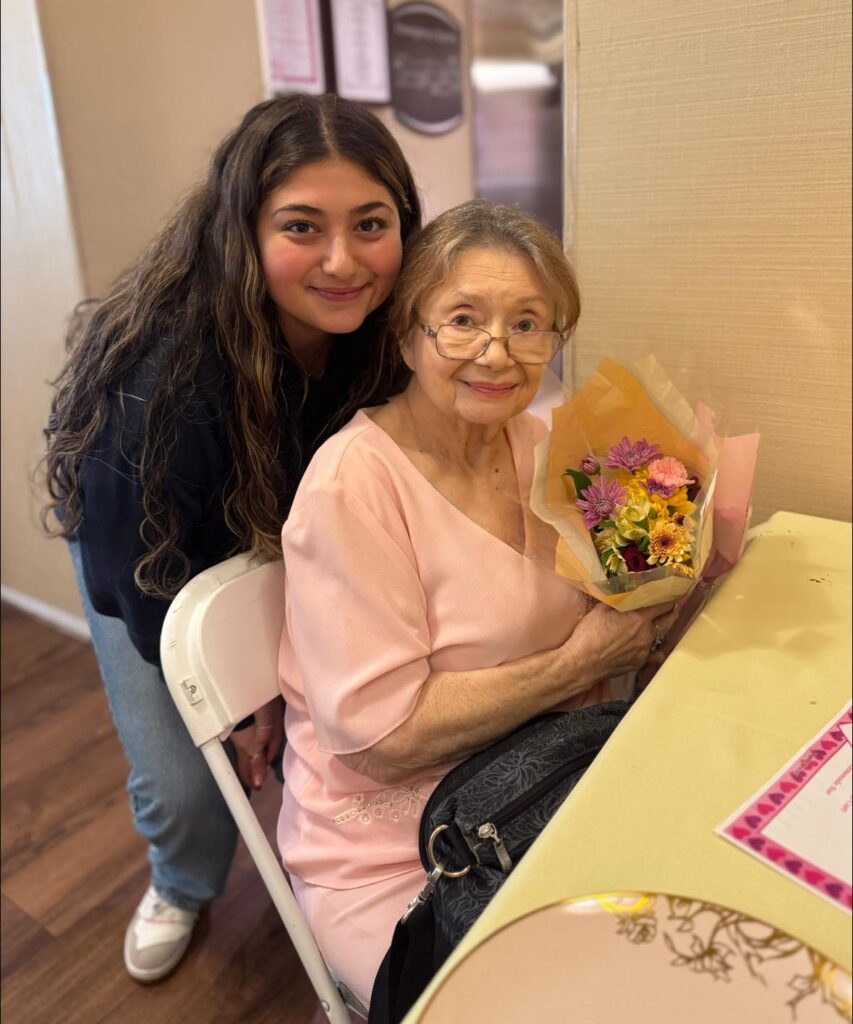
If you do decide that the care and services provided at memory care communities afford you and your loved one the lifestyle, health, and security needed to live a quality life, you’ll be in the capable hands of a well-trained memory care staff.
For example, employees in memory care communities are certified and trained to provide top-quality care for the many issues that arise as a result of dementia or Alzheimer’s disease. Similar to the staff in assisted living facilities, memory care staff members provide help with everything from meal preparation to personal care and much more.
Let’s get personal for a minute.
At our senior living community, our staff members are trained in providing lifestyle offerings that cater to the eight dimensions of well-being. Personalized activities, meals, outings, and therapeutic offerings help provide the extra structure and support needed to help people with dementia navigate their life journey ahead.
In other words, memory care staff ensures that their residents are receiving meals, attending activities, and receiving the help they need with activities of daily living that help residents thrive.
What to look for when choosing a memory care facility
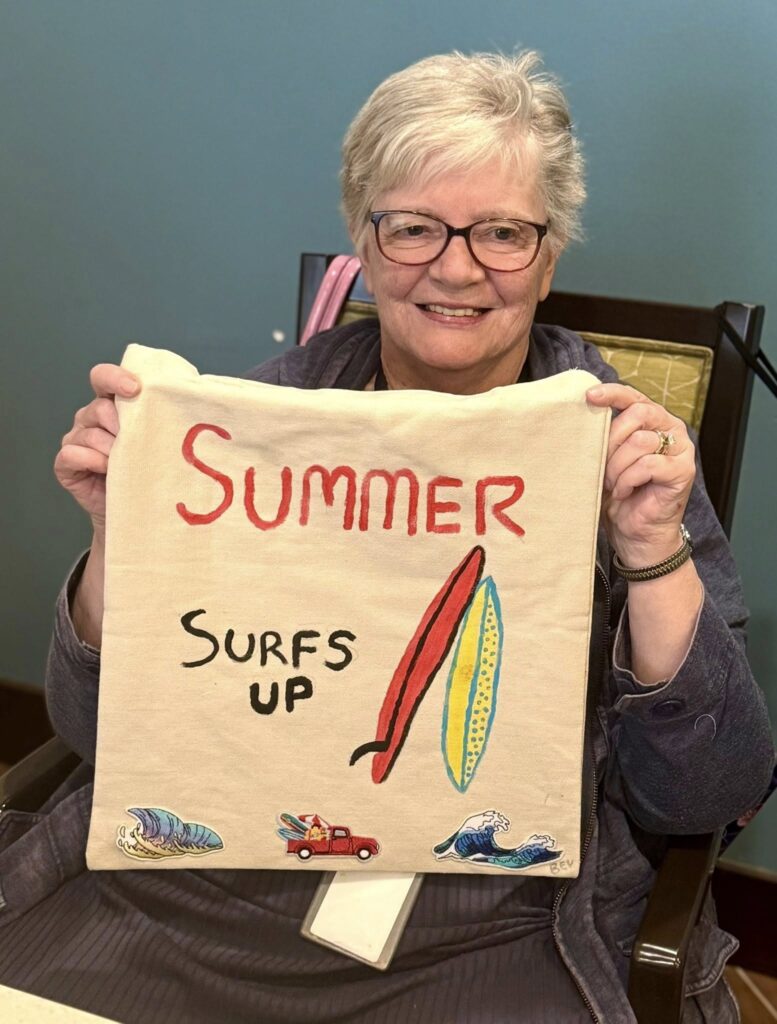
If you’re choosing a memory care facility or residential care community for you or your loved one, a helpful first start is with one of our partners, the Alzheimer’s Association Community Resources Finder. The Alzheimer’s Association Community Resource Finder provides an online directory of senior care services.
When considering your options for memory care or skilled nursing care, we always recommend visiting memory care communities several times before selecting a community as your home. We also recommend that one of your visits be unannounced and in the evening.
The reason is that fewer staff tend to be on call in the evenings, so you’ll gain a better understanding of the quality of care provided when residents need care.
When visiting other types of senior living communities, you’ll want to take notes on the following key criteria::
- The layout and physical environment of the facility
- The quality of the staff
- The food and activities
- Any extra options to receive extra support and continuing care from health professionals for other adjacent health conditions
Let’s explore each of these bullet points in greater detail.
The layout and physical environment of the facility
When we’re talking about the layout and physical environment of a memory care community, here are a few aspects to keep in mind while sifting through care options.
- Is the memory care community clean?
- Does the layout include circular hallways so residents don’t become lost, frustrated, or confused about where they are in space and time?
- How are the rooms labeled? Do they include words and pictures — and does each apartment include a memory box to help residents remember they’re at home?
- The great outdoors: does the community include enclosed outdoor areas with walking paths? Are residents making use of outdoor spaces?
- Do residents and staff members share communal spaces? For example, at Village Walk, our residents are invited to participate in preparing meals for those less fortunate for Thanksgiving dinner charity events. What’s more, many memory care communities include shared gardening spaces that residents tend to each week.
The quality of the staff
When vetting memory care communities, you’ll want to ask about staff shortages and how much the facility relies on temporary employment agencies to staff open positions. What’s more, consider asking the following questions:
- How are the resident-to-staff ratios? For example, at Village Walk, we have a small 8:1 resident-to-staff ratio, ensuring residents receive personalized care and attention in every interaction.
- How long has the executive team been working at the facility?
- Are staff members promptly meeting residents’ needs?
- Do skilled nurses work on site?
- What type of dementia-specific training does the staff hold?
- How does the staff work with residents who become agitated?
The cuisine and recreational activities provided
A large draw of memory care for seniors is the community’s food and activity offerings. When visiting an assisted living, skilled nursing, or memory care facility, you’ll want to pick the staff’s brains about cuisine and their activities calendar.
A few potential questions to ask include:
- Can I have a copy of the activity calendar?
- Since studies suggest that creative art-based storytelling activities may slow the progression of dementia and memory loss-related conditions, do you incorporate auditory and visual art-based activities in your community?
- For picky eaters, what strategies do you use to encourage them to eat?
- How do you get to know what your residents like, food and activities-wise?
Before making your selection between memory care options for your loved one, we recommend visiting the facility, eating at least one meal, and participating in one recreational activity. Doing so will give you a feel for the atmosphere and ethos of the community, so you can make a better decision for your and your loved one’s needs.
Options for continuing care and support
You’ll want to ask the staff what types of care a memory care staff can provide outside of memory-related healthcare.
Consider inquiring about which type of health conditions would be grounds for needing more care — or to be moved to a more expensive level of care within the memory care community.
Since extra care often incurs extra costs, you may want to inquire about whether the facility accepts Medicaid.
If not, you’ll want to ask the staff about which financing options they offer for assisted living and memory care.
Addressing the costs of memory care
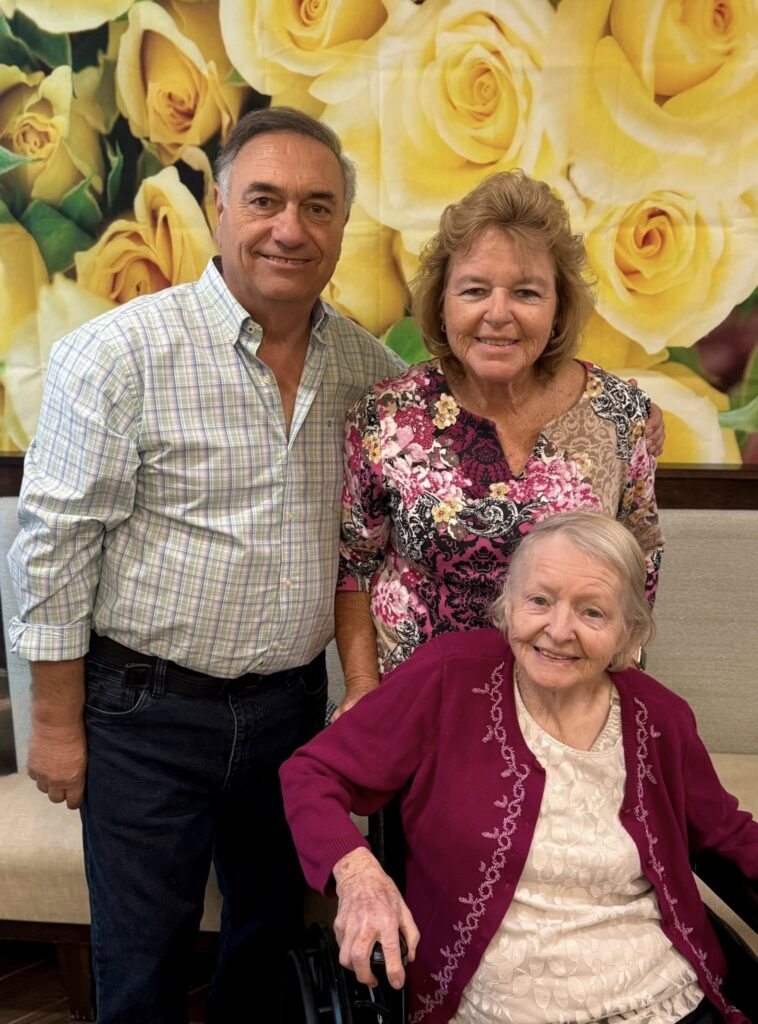
When the time comes to address the costs of care — both in memory care facilities and assisted living communities — remember that the more (and higher) level of care and supervision provided, the higher the care costs.
In general, memory care monthly rent tends to be higher than the average monthly costs for living in assisted living facilities. With that being said, receiving memory care still tends to cost less than receiving care and supervision in a skilled nursing facility.
As such, the cost of memory care and other assisted living care varies from state to state. Also, costs vary with the level of care the senior receives.
With that being said, Medicare and Medicare Advantage plans tend not to pay for room and board or personal care in assisted living facilities, though Medicare may pay for medical care the care facility provides.
Other options for covering costs
What’s more, if you’re trying to cover the costs of care as a veteran, Veterans benefits may help cover the cost for eligible veterans and their spouses who are 65 or older.
Sometimes, memory care residents run out of assets and may look for other options to pay for continuing care. As such, Medicaid may provide some coverage for long-term care, but this coverage may only be used if the facility in question accepts it.
If you’re looking for personal care for yourself or a loved one, some residents will sell off personal assets or use benefits on a life insurance policy to help cover the costs. What’s more, talking with an elder law attorney for financial planning, protecting assets, and qualifying for Medicaid (among other ways to pay for care) is another option.
Regardless of your financial situation, a quality memory care and assisted living community will work with you and do everything in its power to ensure you receive the care you need while taking into account your financial situation.
Other memory care options for seniors
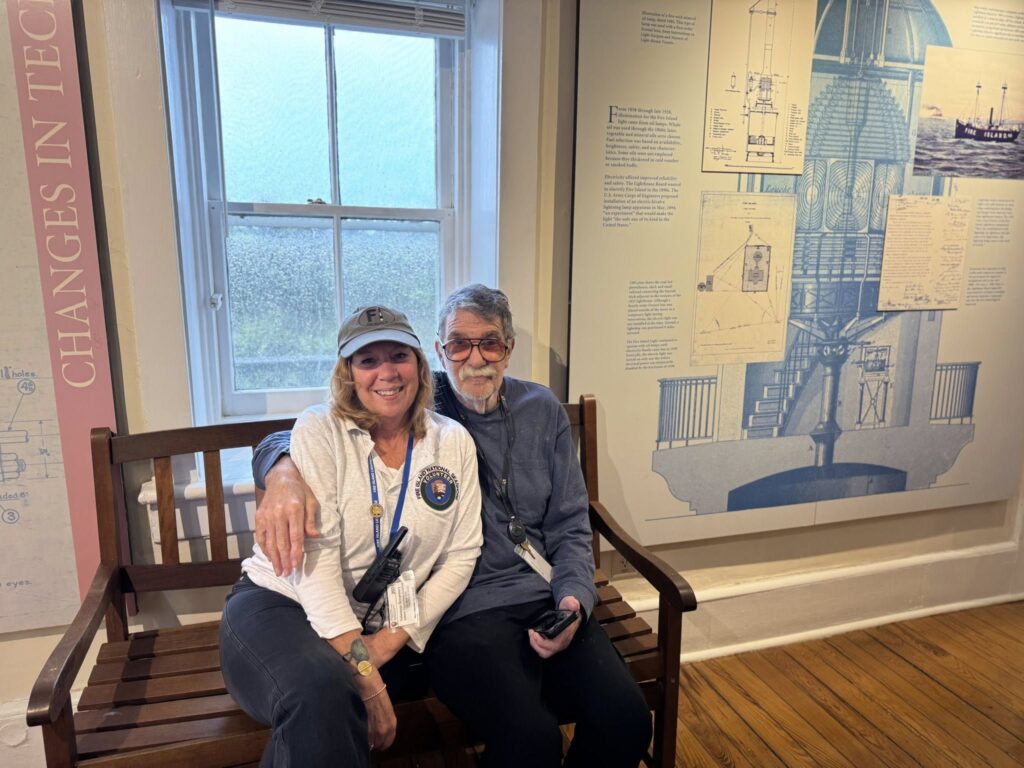
Memory care isn’t the only option for seniors when considering dementia care. Home care allows loved ones to stay in a familiar environment, and it tends to be less expensive than memory care.
What’s more, adult daycare programs are also an option. Adult day care provides activities and opportunities to socialize during the day with other similar-aged peers.
Finally, relying on caregivers and family members at home to provide support is always an option. With that being said, consider other options if caring for your loved one affects your physical and emotional health.
We definitely recommend researching memory care or skilled nursing support for you and your loved one’s evolving needs if you feel your health changing.
Did you know?

Did you know that two weeks ago was National Nurses Week? As National Nurses Week comes to an end, we wanted to share some of the beautiful headshots of our resident nurses and take a moment to honor them.
Village Walk’s memory care and assisted living neighborhood is home to six residents who dedicated their lives to helping others.
Our resident nurses served in the Navy, hospitals, psychiatric settings, and schools. Our nurses spent their lives caring for others, and we couldn’t be prouder.
Curious to see what our residents looked like back in the heyday of their careers? Visit our Facebook page for a fun blast to the past and to meet our esteemed resident nurses.
Do your due diligence before choosing memory care for your senior loved one
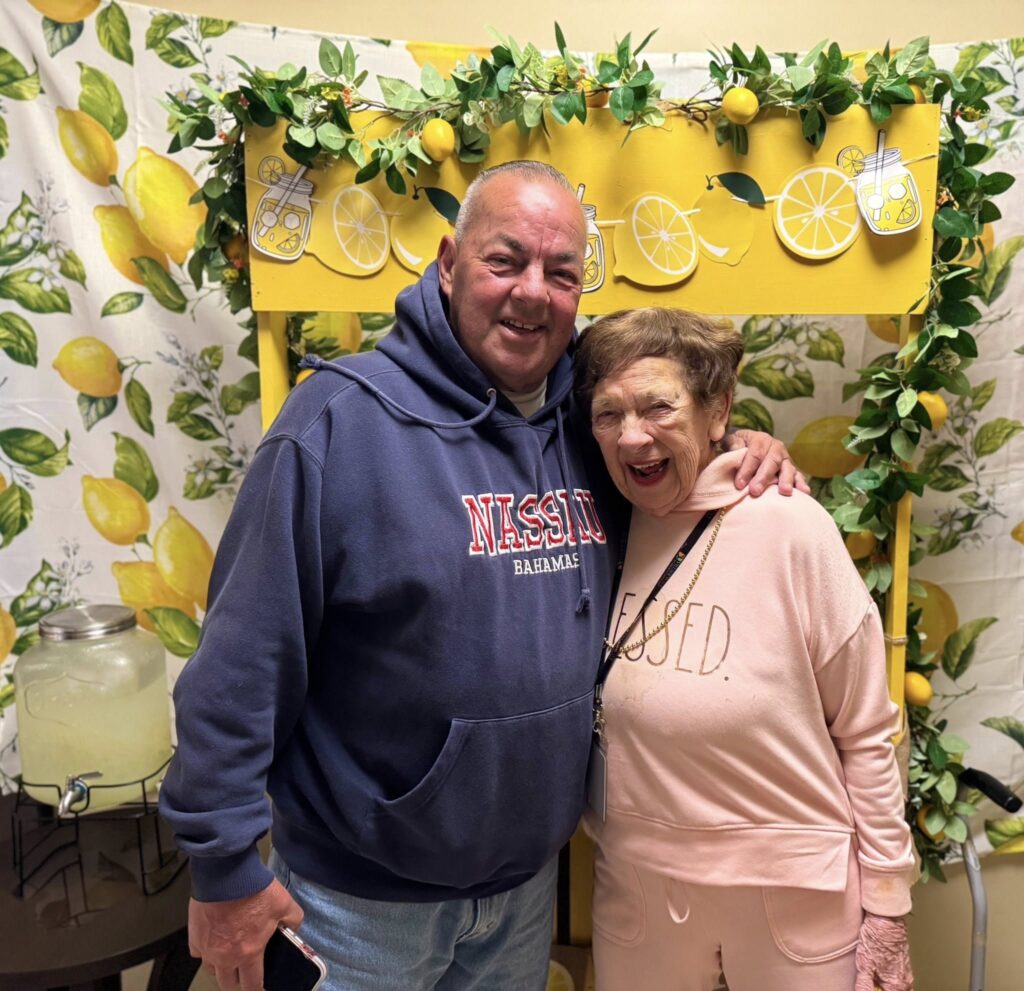
Just as our nurses served our nation years ago, skilled nurses and dementia care team members serve residents to provide quality healthcare, programming, and activities for residents.
Memory care involves specialized care for those with dementia, Alzheimer’s, or other memory-related diseases and conditions. But just as every nursing team is different, every memory care community is different.
As such, we always recommend doing your due diligence before choosing a memory care, assisted living care, or skilled nursing care community for you and your loved one. Make sure to come with a list of questions to the community, and don’t hesitate to pick the senior living concierge staff’s brains on all of the facility’s diverse offerings.
And, if you ever have questions about memory care or other long-term care options for seniors, you can always reach out to our senior care team. With more than 20 years of combined experience in geriatric healthcare, our senior living specialists would be happy to provide you with the answers you’re seeking.
To get in touch with one of our senior concierge staff members, contact us today! We look forward to helping you navigate the journey ahead.

